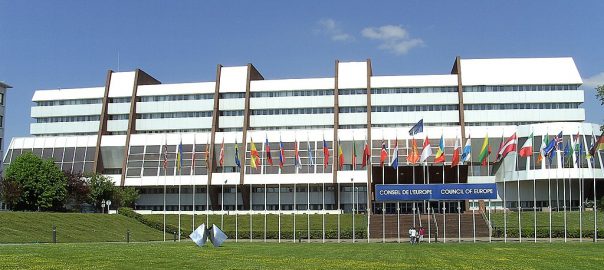Soeben ist ein Beitrag von Univ.-Prof. Giegerich unter diesem Titel im von Stefan Kadelbach und Rainer Hofmann herausgegebenen Band „70 Years of Human Rights and the Rule of Law in Europe” erschienen. Prof. Giegerich zieht darin u.a. diese Schlussfolgerungen:
„Treaty monitoring in the Council of Europe provides a very diverse picture. The elaborate system of the ECHR with compulsory inter-State and individual application procedures leading to binding judgments of a true international court, the ECtHR, has set a standard unmatched anywhere in the world. Yet, its success has produced a huge case overload and growing reluctance by States Parties to abide by the ECtHR judgments. Accordingly, the ECHR monitoring system is in urgent need for reform in order to maintain its effectiveness as well as its credibility in the long run.
The much less elaborate ESC/ESC (rev) system with State reports and an imperfect and little accepted collective complaint procedure to a court-like body of independent experts is in no less urgent need of reform, but for the exact opposite reason – to make it more effective. An approximation of these two treaty monitoring systems would also give credence to the oft-proclaimed indivisibility of first- and second-generation human rights. … To the extent of overlap of the substantive guarantees of another human rights treaty with the Convention, Art. 34 ECHR enables the indirect enforcement of obligations deriving from that other treaty. The ECHR’s effectiveness is not solely based on the binding judgments of the ECtHR but also on the direct effect which the Convention rights are given by the national courts. Making the guarantees in other human rights treaties directly enforceable in the national court systems as far as possible would considerably increase their effectiveness and transform the national courts into informal treaty monitors which assist and relieve the international monitoring bodies, in accordance with the principle of subsidiarity. … Moreover, the EU‘s potential as protector of international human rights converted into EU law should also be systematically exploited, transforming national courts and the CJEU into indirect monitors with the help of supranational EU law provisions mirroring the international standards. On the other hand, the EU‘s potential as violator of international human rights should be decreased by its accession to the CoE’s human rights treaties, most notably the ECHR, and submission to external monitoring (like all Member States). This would enhance both the Union’s own and the CoE’s credibility in human rights matters in Europe and the wider world.”


